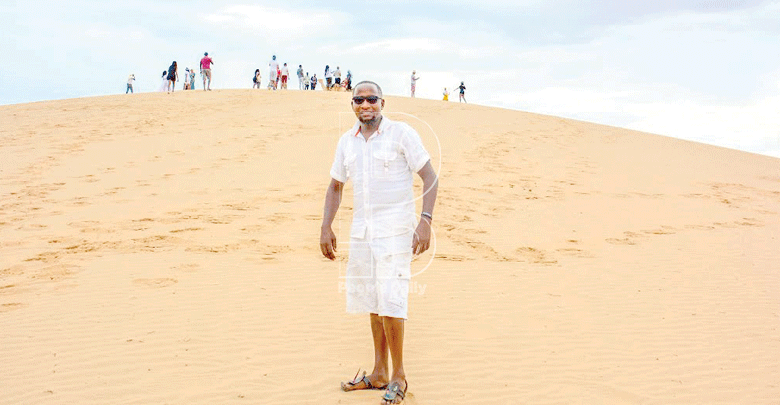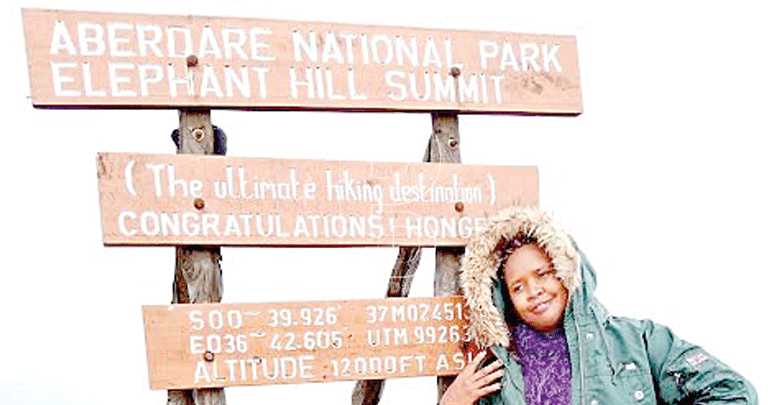How local safari companies are reinventing travel

When she was a second-year student studying computer programming at Kenyatta University in 2012, Stella Maris Miriti wanted to have something that would distract her from the tough course. She opted for travel as a hobby.
“I had a list of places I wanted to visit, but I didn’t have a vehicle or the finances to facilitate my movemen.
So, I thought it would be cheaper if I brought my friends on board and share the cost of the travels,” she recounts.
This passion to travel gave birth to Stejos Tours and Travel limited in 2014.
“I began with exploring already established tourist destinations, such as animal parks, the coast, mountain hikes among others, but soon I realised my clients, who entailed mostly young people, liked to discover new places.
That’s how I launched affordable domestic packages to undiscovered tourist destinations targeting the youth, who have traditionally been shunned by big wig tour companies, because of their weak financial muscle,” she says.
Having identified the target market, they set out to market the country through low cost packges to entice young people. Stella says many Kenyans at the time were not keen on exploring their country, but that is fast changing.
Affordable trips
Her travels comprise both short and private visits, with charges starting from Sh1,500 to destinations such as Nakuru, Kiambu, Nairobi and Kajiado counties.

She also does hotel bookings around East Africa, Asia and the Middle East, which cost from Sh2,000 per night, and trips to the United Arab Emirates, Tanzania, Ethiopia, Uganda, Rwanda as well and Bangkok.
Overnight trips to Masai Mara, Amboseli, Samburu and Meru National Parks start from Sh12,000.
“We were the first tour company to host over 50 young Kenyans at Chale Island, Kwale county for a zumba experience.
Pictures of the trip shared on social media set the internet ablaze and everyone was amazed to learn such a place exists in the country.
The beauty of dealing with young people is that they love to share their experiences and give recommendations,” says Stella.
Travelling in the past was an expensive affair, only enjoyed by a few or seen as the privilege of foreigners and wealthy travellers, and big tour companies would market and work with agents to attract that clientele.
But the trends have changed. Stella’s company is one, among many upcoming travel agencies offering unmatched deals for travel-hungry Kenyans who want to explore their country at affordable prices.
Statistics indicate that there are currently over 400 tour companies existing in the market.
Despite that travel has become accessible, because of the internet age, travel agents and tour operators have become increasingly important offering the best and competitive prices to travellers.
The agencies negotiate with suppliers of tourism products, such as airlines and hotels, which offer them huge discounts in exchange for bulk bookings.

“It’s a game changer as they are opening up different destinations and people’s eyes to see the wonder of their country.
They are also promoting small camps too, which is good. International tourism is seasonal and if domestic tourism is well managed, it can sustain most companies in the country,” says Nicholas Kiritu, a travel expert and the National Chairman of Kenya Tour Guides Association.
The companies have also tapped into online marketing, which most big tour companies are trying to adapt to.
Their target is mainly anyone with disposable income and time to explore hidden gems.
“Offering affordable trips for big tour companies might be an issue as their overhead costs are high and also giving service to their clients can be expensive, which eventually affects the pricing of their safaris,” adds Nicholas.
Mission tourists
Ng’ang’a Kamau founder of Wild Springs Adventures focuses on outdoor activities, such as hiking, trekking and camping. He also has tapped into the missionary tourism segment, where he engages with mission tourists who visit the country for sustainable empowerment programmes.
“These kind of tourists were barely offered relevant packages as tour companies only focussed on traditional safari tours,” he explains.
Ekrah Kimani, founder of Yofi Adventures established her company in 2019 after noting a gap in the sector.
“I remember going to Giraffe Centre in Nairobi and the feeling I got from feeding the giraffes was so magical that the experience stuck in my mind for a very long time!
I decided to set up my own tour company to give others that kind of experience,” she says.
Her company focuses on hiking trips, wildlife safaris, excursions, bird watching trips, group and private trips.
The average cost for a day trip is between Sh2,000 and Sh3,500, depending on the location, distance, transport, entrance fee, guide’s fee, food or water provision and other costs.
“Our uniqueness is on the genuine interest we have in our client’s needs and ensuring that one gets value for their money.
We focus mostly on people who are very passionate about the environment, nature, wildlife, hiking and excursions,” explains Ekra.
Some of the travel agencies and tour operators also emerge to fill in the gap for sustainable travel.
For instance, Martin Mwangi, the manager of Go Green Expeditions Limited, began his company in 2016 to encourage travellers to travel in a responsible manner.
“I offer unique tailor-made tours and events to destinations across the country and the East African region.
The response has been good, especially with the millennial generation who are more likely to travel based on our social media posts that give them inspiration to want to experience a lot more, away from their day to day lives,” he says.
However, even as they strive to give Kenyans affordable travel experiences, there are many challenges the companies face.
“There are too many cons out there who use our brand to loot money from clients.
I would also urge the Ministry of Tourism to enlighten locals of the beauty and treasure the country has to offer, because there is little awareness, and regulate hotel rates to attract both locals and foreigners,” observes Esther Njoroge, the CEO Bountiful Safaris.
Value for money
Stella says her company and other small tour companies’ challenge has been ensuring that they live up to their names as reputable companies.
“I remember when we started these tours we were branded ‘briefcase companies’ by the established players in the industry.
Our reach impacted the industry, but it took a lot of time and effort. My recommendation is the tourism ministry support small companies trying to penetrate into the industry,” she urges.
The pandemic has also been tough for the companies with a lot of cancellations and refunds and no stimulus from the government.
“We also had to call off all our joining group trips because of social distancing and to keep our clients safe, but the domestic market has kept us busy with hotel bookings and safaris.
We have been able to serve more Kenyans than we had ever done for the past six years in the business,” says Stella.
For Eliud Ndung’u, CEO of Safiri Nasi, their main challenge is on the cost.
“There are so many places within Kenya that has potential for tourism, but it’s expensive to explore all of them.
The infrastructure is poor too, which means you will use more money to get to these destinations.
The ministry should invest part of their marketing budget to offer as many familiarisation trips as possible to tour operators who would in turn develop packages to destinations that have potential.
This way, Kenya would reap big from the tourism sector,” he notes.
Nicholas adds that despite being game changers, some companies have been offering poor quality services, therefore, not giving travellers much needed experiences.
“With the budget safaris comes a lot of compromise as some are using shortcuts at the expense of good service.
They are not using professional guides, instead, they are using drivers who do not have the right knowledge about the parks or game reserves,” notes Nicholas.
Nicholas recommends that tour companies be vetted so that those who spoil for others do not have a chance to do so.
“Hotels should work with tour companies and shouldn’t design their own itineraries, because they are blocking tour companies from doing business.
County governments too, should promote the young companies to ensure they keep up the good job of promoting our destinations,” he says in conclusion.












